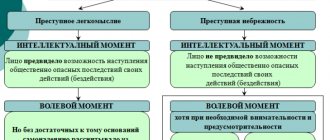It is necessary to distinguish between arrest and detention. Only judicial authorities have the right to impose arrest, either as a preventive measure (only in home form) or as a final punishment. Reasons for restricting freedom in the form of a preventive measure may be suspicions of law enforcement officers that a person:
- may destroy evidence;
- will threaten witnesses or interfere with the fair and thorough examination of the case;
- will continue to commit crimes;
- will escape justice.
Arrest as a final punishment is imposed for crimes of minor gravity. The main differences between detention and arrest as a preventive measure and as a punishment:
| Action | Who has the right to commit? | Term |
| Detention | Policemen | Up to 48 hours, unless the court decides on a longer detention or a preventive measure (Article 14 of the Law “On Police”) |
| House arrest (preventive measure) | Court | Up to 2 months. In exceptional cases, the period may be extended if law enforcement agencies have not found sufficient evidence (Article 107 of the Criminal Procedure Code (CCP) of the Russian Federation). |
| Arrest (punishment) | Court | From 1 month to six months. If arrest replaces compulsory work, then the punishment may last less than 30 days (Article 54 of the Criminal Code (CC) of the Russian Federation). |
It happens that for some unfounded reason, police restrict a person’s freedom for more than 2 days without providing a court decision.
Similarly, the preventive measure or type of punishment in the form of arrest chosen by the court may be unfair. Especially if the person is innocent or has not committed serious offenses. In this case, it makes sense to seek help from a lawyer specializing in criminal cases and revocation of arrest.
Do you want to figure it out, but don’t have time to read the article? Lawyers will help
Entrust the task to professionals. Lawyers will complete the order at the cost you specify
27 lawyers on RTIGER.com can help with this issue
Solve the issue >
Criminal penalty
For committing a crime, criminal liability is imposed— criminal punishment.
Rodion Raskolnikov is the hero of the novel by F.M. Dostoevsky's Crime and Punishment rebelled against the rules of society. But he also agreed that retribution and punishment are inevitable for blood. There is no sin without atonement, and no crime without punishment.
What are the general principles of sentencing? A person found guilty of committing a crime is given a fair criminal punishment within the limits provided for by the relevant article of the special part of the Criminal Code, and taking into account the provisions of the general part of the code. The sanction of the article is designed in such a way that the punishment is indicated from mild to more severe (for example, a fine is indicated first, and then imprisonment). A more severe type of punishment from among those provided for the crime committed is assigned only if a less severe type of punishment cannot ensure the achievement of the goals of the punishment. When assigning punishment, the nature and degree of social danger of the crime and the personality of the perpetrator are taken into account, including circumstances mitigating and aggravating the punishment, as well as the impact of the imposed punishment on the correction of the convicted person and on the living conditions of the family.
The law establishes types of criminal punishment . They can be basic (i.e. applied independently), additional (i.e. applied in addition to the main one), basic and additional (i.e. can be used by the court independently or in addition to the main types of punishment).
Punishment is a measure of state coercion applied by the court to persons who have committed crimes
Principles of punishment:
- legality
- humanity
- individuality
Purposes of punishment:
- restoration of social justice
- correction and re-education
- crime prevention
Features of punishment:
- public measure on behalf of the state
- measure defined by law (types, size, order of appointment, etc.)
- a measure that deprives or restricts the rights and freedoms of a person
- measure applied only to persons guilty of a crime
- a measure applied only by the court upon its verdict
is an exceptional and at the same time always the main measure of criminal punishment . This is clearly seen from the diagram below.
Types of punishments under criminal law:
Basic:
- compulsory work
- correctional labor
- military service restriction
- restriction of freedom
- arrest
- detention in a disciplinary military unit
- imprisonment for a fixed period
- life imprisonment fine
Basic and additional:
- fine
- deprivation of the right to hold certain positions or engage in certain activities
Additional:
- deprivation of a special, military or honorary title, class rank and state awards
- confiscation of property
Exceptional:
- the death penalty
Even in ancient times, people thought about the justice and correctness of punishment.
The ancients depicted the goddess of justice as a woman. She was blindfolded so as not to see who she was judging and to be objective. In one hand she held a punishing sword, and in the other - scales. Circumstances that mitigated responsibility were symbolically placed on one side of the scale, and aggravated on the other.
The following are recognized as mitigating circumstances:
- a) committing a crime of minor gravity for the first time due to an accidental coincidence;
- b) the minority of the perpetrator;
- c) pregnancy;
- d) the presence of young children with the perpetrator;
- e) committing a crime due to a combination of difficult life circumstances or out of compassion;
- f) committing a crime as a result of physical or mental coercion or due to financial, official or other dependence;
- g) commission of a crime in violation of the conditions of legality of necessary defense, detention of the person who committed the crime, extreme necessity, justified risk, execution of an order or instruction;
- h) illegality or immorality of the behavior of the victim, which was the reason for the crime;
- i) confession, active assistance in solving the crime, exposing other accomplices in the crime and searching for property obtained as a result of the crime (this is what Vladimir Dahl’s famous dictionary says about repentance: “Without remorse, there is no forgiveness”, “And he repented, but you can’t turn it back” "How aptly they convey the meaning of sincere repentance after committing a crime!);
- j) providing medical and other assistance to the victim immediately after the commission of a crime; voluntary compensation for property damage and moral harm caused as a result of the crime, other actions aimed at making amends for the harm caused to the victim.
This list is not exhaustive and the court, depending on the specific case and the personality of the defendant, may consider any other mitigating circumstance. When imposing a criminal penalty, circumstances not provided for by the Criminal Code may be taken into account as mitigating factors.
The following are considered aggravating circumstances:
- a) repetition of crimes, relapse of crimes;
- b) the onset of grave consequences as a result of the commission of a crime;
- c) committing a crime as part of a group of persons, a group of persons by prior conspiracy, an organized group or a criminal community (criminal organization);
- d) a particularly active role in the commission of a crime;
- e) involvement in the commission of a crime of persons who suffer from severe mental disorders or are in a state of intoxication, as well as persons who have not reached the age at which criminal liability begins (wisely noted in the Russian proverb “A drunken man’s sins, but a sober one’s answer”);
- f) committing a crime motivated by national, racial, religious hatred or enmity, out of revenge for the lawful actions of other persons, as well as in order to conceal another crime or facilitate its commission;
- g) commission of a crime against a person or his relatives in connection with the performance of official activities by this person or the performance of a public duty;
- h) committing a crime against a woman who is known to be pregnant by the perpetrator, as well as against a minor, another defenseless or helpless person or a person dependent on the perpetrator;
- i) committing a crime with particular cruelty, sadism, mockery, and torture for the victim;
- j) committing a crime with the use of weapons, ammunition, explosives, explosive or simulating devices, specially manufactured technical means, toxic and radioactive substances, medicinal and other chemical and pharmacological preparations, as well as with the use of physical or mental coercion;
- k) committing a crime during a state of emergency, natural or other public disaster, as well as during mass riots;
- l) committing a crime using the trust placed in the perpetrator by virtue of his official position or contract;
- m) committing a crime using the uniform or documents of a government representative.
If an aggravating circumstance is provided for by the relevant article of the special part of the code as a sign of a crime, it in itself cannot be taken into account again when assigning a criminal penalty.
Certain rules exist for sentencing minors; persons who committed a crime in a state of insanity; or after committing a crime by a person suffering from mental illness.
The criminal law provides for a whole system of measures that testify to the humanism of our state and the desire to correct a minor, primarily through educational measures. If the court finds that the correction of a person who has committed a crime under the age of eighteen that does not pose a great public danger is possible without the application of criminal punishment, it may apply to such person compulsory educational measures that are not criminal punishment. A minor may be released from criminal liability and referred to a commission on juvenile affairs to consider the application of compulsory educational measures against him.
The consideration of a criminal case by the court, the court verdict and the assigned criminal punishment are always associated with legal and moral consequences not only for the convicted person himself, but also for others. The family, relatives, and comrades of the convicted person experience deep emotions.
The punishment system and its significance
The punishment system and its significance.
Specified in Art. and 88 of the Criminal Code of the Russian Federation, the types of punishments of criminal liability form a system of types of punishment that allows the court, on the basis of the law, taking into account the experience of judicial practice, public legal consciousness and scientific recommendations, to rationally and, if possible, effectively use various measures of influence on the convicted person, combining property deprivations, restrictions on personal non-property inalienable rights and interests, impact on the psychological structure of the individual, limitation of the use of one’s professional opportunities in the future.
According to the current Criminal Code of the Russian Federation, the system of types of punishment as a whole and each individual type of punishment contains a complex of various means of influence on the convicted person, which is individualized by the court when passing a sentence, and is steadily implemented by the penal authorities in accordance with the law. The regulations on the types of punishment in this article represent the current law, i.e. legitimate will of the state. They are subject to strict implementation while maintaining the possibility of scientific criticism. The opinion about the softness or harshness of the existing punishment system cannot justify attempts to make illegal decisions.
The court and bodies executing punishment are obliged to take into account the will of the legislator and take all necessary measures for its most effective implementation based on respect for the current law.
What types of arrest are there?
As of 2022, only two forms of arrest are used in Russia:
- House arrest;
- Stay of the sentenced person in the arrest house.
In order to impose arrest as punishment, the court must assess the severity of the crime and determine whether the reasons for choosing arrest are:
- The severity of the crime committed;
- Physical condition of the convicted person, medical indicators;
- Marital status, presence of minor children;
- Characteristics from a psychologist and friends;
- Age of the convicted person;
- Attitude towards the crime committed;
- Whether the crime was committed for the first time;
- The circumstances in which the crime was committed.
Arrest house
The next most severe punishment is the convict’s stay in an arrest house, chosen as a place of strict isolation of criminals from society. As a rule, punishment in the form of arrest is chosen for the “stumbled” category of criminals.
You can be assigned to stay in a house of arrest if:
- The convicted person does not have a permanent place of residence;
- The personality and characteristics of the convicted person do not allow the court to trust him;
- The convict was already under house arrest, but violated the rules of residence and the terms of his sentence;
- During the investigation, the convict was hiding from the justice authorities.
Unlike being under house arrest, a house of arrest prohibits the prisoner from leaving the territory of the house. Exceptions are situations and conditions that are dangerous to the life of the convicted person:
- Force Majeure;
- Natural disaster, fires;
- Attack on the arrest house;
- Threat to the safety, life and health of the convicted person;
- Serious illness of a prisoner requiring inpatient treatment in a medical institution.
If internal conflicts arise and for other valid reasons, the law allows the arrestee to be transferred to another arrest house.
In fact, the conditions of stay and detention of a prisoner in a house of arrest are often stricter than in many general or strict regime colonies. House rules include;
- Prohibition on communication with family, friends, friends;
- It is prohibited to receive and send parcels and parcels;
- Purchase of food products for more than the amount calculated using the formula “minimum wage + 20%”.
- Exchange of emails and messages is prohibited;
- Telephone calls are allowed only in extreme circumstances (death or illness of a relative;
- The prisoner is required to work 4 hours a day, without receiving pay.
Nevertheless, prisoners have the right to daily one-hour walks in the fresh air.
If military personnel are arrested, they must be sent to a guardhouse ten days before being sent to the place where they are serving their sentence. In addition, military personnel serve their sentences separately from civilians, and officers from privates.
The role of punishment in the fight against crime
What role does punishment play in the fight against crime?
Far from being the main one, and even then only auxiliary, since in the fight against crime, preference should be given to measures of an economic, political, cultural and organizational nature.
Punishment is a last resort and should be used only when preventive measures have proven ineffective. Even Montesquieu, and then Beccaria, more than two centuries ago, formulated the idea that a legislator, wise by experience, would better prevent a crime than be forced to punish for it later.
Punishment should only be applied when all other remedies have been exhausted. After all, no one has yet proven what punishment is: good or evil?! Apparently both at the same time. It all depends on in what terms it is considered and in what relation it is placed with other social values.
Goals and types of punishment
House arrest
According to the lawyer, house arrest is one of the mildest punishments, preferable for a convicted person rather than a detention center.
Unlike other types of imprisonment or arrest, when a convict is assigned to house arrest, they are allowed to keep their passport, because in fact he is not in custody. The period of house arrest can be up to two months.
To assign arrest as punishment to a convicted person, the investigator is obliged to check:
- Does the convicted person have a permanent place of residence?
- Is it possible for employees to establish constant surveillance of the convicted person?
As a place for serving house arrest, you can choose not only the apartment or house of the convicted person, but also a hospital or medical institution, if there are special indications.
Since the location of the convicted person during house arrest will not necessarily coincide with his registration address, the law had to define criteria for choosing the place of arrest:
- Permanent residence of his family and minor children with him;
- The presence of personal belongings of the convicted person;
- Availability of a medical facility, if required.
After the place of residence of the convicted person has been chosen, you need to select the restraints of freedom:
Have a question for a lawyer? Ask now, call and get a free consultation from leading lawyers in your city. We will answer your questions quickly and try to help with your specific case.
Telephone in Moscow and the Moscow region: +7
Phone in St. Petersburg and Leningrad region: +7
Free hotline throughout Russia: 8 (800) 301-39-20
- The circle of persons who have the right to see the convicted person and stay in the territory of serving the sentence is designated;
- Determination of acceptable means of communication for conversations and correspondence;
- Is working from home allowed?
- Restriction on movement (the main restriction of a person sentenced to house arrest). If someone is arrested, then he is obliged to: Visit the store, if he lives alone, only with the permission of the investigator or the person in charge;
- Located at the punishment address around the clock, it is forbidden to leave the territory even a couple of meters without permission;
- Report to supervisory authorities a certain number of times a month.
Labor law
In this branch of law we talk about disciplinary liability. Why? Because work can be possible under conditions of discipline. Any organization must have a job description, in accordance with which the employee performs his duties. For example, he goes to work.
There are three penalties in total (according to Article 192 of the Labor Code of the Russian Federation):
- comment;
- rebuke;
- dismissal.
Disciplinary action is applied to the employee no later than one month from the date of commission of the offense. For example, an employee did not show up for work. Or skipped work. By the way, absenteeism does not mean that an employee shows up at work for more than 4 hours. If no penalties are applied to the employee within six months, then everything is fine - you, dear friend, have avoided a “terrible fate.”









